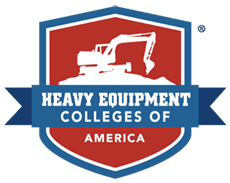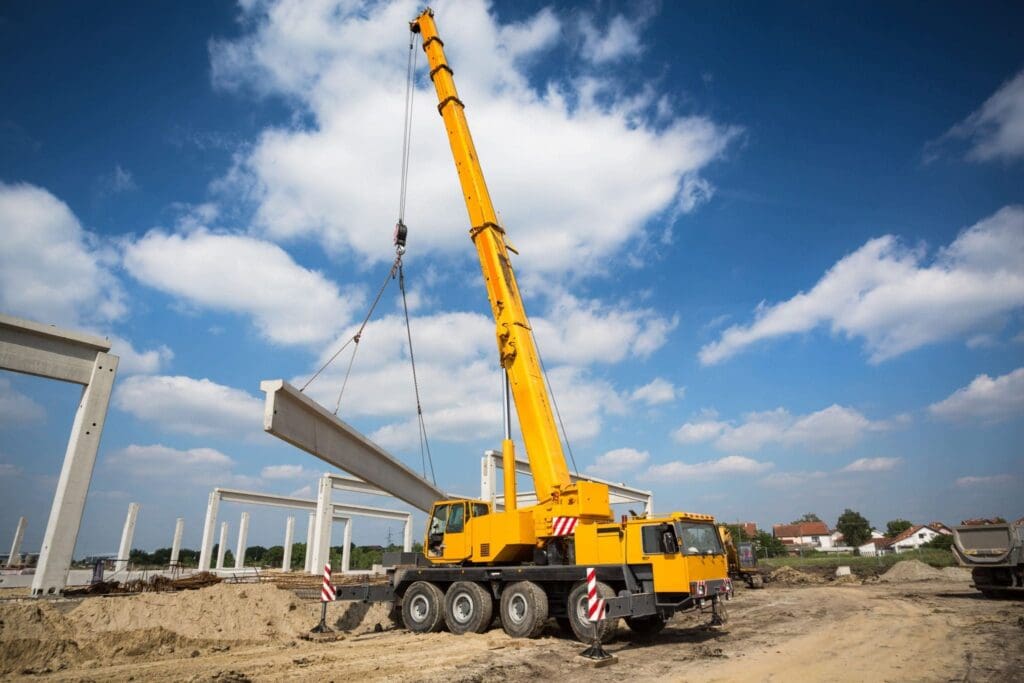An Introduction to Mobile Cranes
Mobile cranes have become a staple in the construction industry. Mobile cranes differ from other cranes in that they are mounted on crawlers or have tires. Mobile cranes are popular in the construction industry due to their mobility. They can be used in all kinds of environments, including places where it’s hard to build permanent structures.
The use of mobile cranes has increased in recent years due to their ability to move quickly and efficiently around a construction site.
The First 50 Years of Mobile Cranes in the United States
- 1866
The earliest recorded use of a mobile crane. It was used to build a railway bridge over the Mississippi River in Minneapolis, Minnesota. This mobile crane was limited in mobility since it was mounted on train tracks. - The 1920s
The mobile crane finally gets off the tracks. These newer model mobile cranes were mounted on traction wheels instead. - Post World War I
The invention of truck-mounted cranes allowed mobile cranes to increase their mobility and travel easier by road. Crawler-mounting was also born from the war. - The 1930s
This decade saw a lot of effort into efficiencies as far as operators were concerned. Feather-touch booster clutches and air-controlled clutches were invented to result in less effort for the operator to engage the clutch. This would lead to the introduction of the Speed-O-Matic clutch that uses low-pressure hydraulics and was effectively used in cranes for 60 years.
The Crane Evolution
The crane evolution has been one of the biggest changes in the construction industry. The crane evolution has been a long process, which has taken over 100 years. The first mobile cranes were introduced in the late 19th century. Cranes have gone from being stationary to now being mobile and can be used in a variety of ways.
Nowadays, the construction industry is one of the largest industries in the world and it is constantly changing to meet the needs of its clients. Mobile cranes are an important part of this change because they allow for more efficient working methods and offer a variety of different features.
Mobile Crane Usage
In the construction industry, these heavy machines are used to lift and move heavy materials. They can be mounted on trucks and trailers or they can be self-propelled by their own engines.
Mobile cranes have many uses including erecting steel structures, unloading ships at ports, lifting large objects from ground level to higher platforms, and transferring cargo from one container to another at warehouses. They are also used in other industries like mining, forestry, and shipbuilding.
How to Operate a Crane
The steps to operate cranes differ depending on the type of crane being used. But these three steps are universal for all crane operators.
Make sure you’re using the right crane for the job. Not all jobs have the same needs, so be sure the one you’re using is right for the job at hand.
Conduct an inspection. Inspecting the crane before use will ensure safety and efficiency on the job. Check oil and fuel levels, brakes, tires, and components of the crane.
Know the protocols. Follow safety procedures, understand the control system, and monitor the load.
There are various programs that offer mobile crane training and certification for graduates of the program.
Heavy equipment training prepares you for a career in the construction industry by teaching you the skills required for success in your chosen field. The programs at HEC provide hands-on and textbook instruction to help students become effective and safe workers. Learn more about heavy equipment training with our list of frequently asked questions.
Working in the winter can be challenging at times. Heavy equipment operators should be aware of the following three things when working on a job site in the winter:
- Different Conditions
- Understand the Data From Machines
- A Higher Importance of Safety
If you thought that a career with job security, job flexibility, and good pay didn’t exist, think again. A career as a heavy equipment operator promises just that. Keep reading to learn more about the heavy equipment operation industry and whether it’s the right career choice for you.
Find Crane Operator Training Opportunities
Job opportunities abound for those with mobile crane training. The Certificate of Heavy Equipment Operations — Mobile Crane offered by HEC provides students with practical hands-on experience in the fundamentals of crane operation. Find a location near you and take the first step toward your new career. Enroll online or call (888) 414-0285 to get started.

